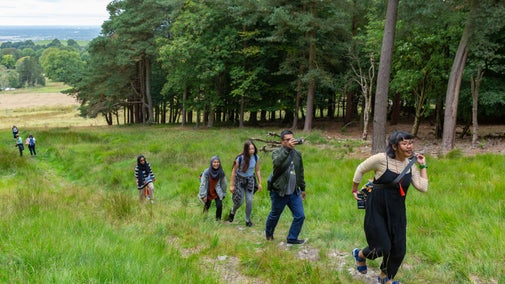
Discover more at Nymans
Find out when Nymans is open, how to get here, the things to see and do and more.


Come and explore Nymans’ ancient oak and beech woodland, home to cascades, sandstone outcrops, a lake and a large variety of plants and wildlife. Can you find the tallest tree in Sussex, scurrying squirrels, birdlife on the lake, or fungi?
The wider estate is part of the High Weald, designated an Area of Outstanding Natural Beauty in 1983, and the woodland is a designated Site of Special Scientific Interest (SSSI).
You can access the woodland from the visitor car park and there are two walks to enjoy:
Trails lead past veteran trees, the old Gamekeeper’s Kennels and flowing cascades. You’ll follow in the footsteps of Medieval iron workers down to the earth dam, once the site of an iron smelting furnace powered by lake water. Along Conifer Avenue you’ll walk amongst giants, including the tallest tree in Sussex. Numbered posts will help to pinpoint your location on the map, while coloured arrows will point you in the right direction. Both walks start/ finish at the bottom of the hill from the car park
Use the woodland map to help you plan your walk.
Nymans’ woodland lies nestled in a valley, so some of the paths are steep and at times muddy. We recommend sturdy footwear and make sure you’re dressed for the weather.
Keep your eyes peeled for sculptures created by a local carver, David Lucas, of some of the wildlife you can spot here.
Anne Messel
Each day we run 'Woods Buggy Tours' to help you discover the estate's 250 acres of wildlife-rich woodland. The volunteer-run tours start at 11.30am and 1.30pm and last around 1 hour. Please contact Visitor Reception on 01444 405133 if you need more information.
Dogs are welcome in the woodlands under close control all year round. Please stick to the paths and keep your dogs in sight at all times. During bird nesting season, from 1 March until 31 August, please keep dogs on leads to protect ground-nesting species of birds.
The woods are a Site of Special Scientific Interest (SSSI) partly for their breeding birds. Many birds nest in the shrub and bramble layer and are easily disturbed unintentionally by dogs running through. We ask for everyone’s support to help birds nest and rear their young.
Explore the captivating beauty of the High Weald Area of Outstanding Natural Beauty as autumn paints the landscape with warm hues and crisp air. To make the most of your visit, keep these tips in mind:
🌲 Stick to Designated Paths: Help preserve the delicate ecosystem by staying on marked paths. This ensures both your safety and the conservation of the woodland's biodiversity. The edges of paths may look devoid of life but thousands of plants are lying dormant, waiting for Spring around the corner.
🍄 Discover the Fungal Diversity: Look out for familiar species like Fly Agaric and Shaggy Ink Caps Delve into the world of mushrooms and toadstools, but remember, some can be poisonous – it's best to admire them from a distance!
🐦 Bird Watching: As colder months arrive, the woodland becomes a refuge for wintering birds. Keep an eye out for Robins, Great Tits, and Woodpeckers. Binoculars can enhance your birdwatching experience.
🌳 Embrace the tranquility: Autumn in the High Weald is a great time for quiet reflection. Enjoy the crunch of leaves, the soft sunlight, and the calm breeze that define this season.
📸 Capture the Moment: Bring your camera to capture the beauty around you. Share your snaps with us on social media using NymansNT – we'd love to see your perspective on this captivating season.
Note: Please remember to respect the environment during your visit. Take your rubbish with you, keep noise levels down, and avoid disturbing wildlife. Let's work together to keep this woodland a haven for all who visit.

Find out when Nymans is open, how to get here, the things to see and do and more.
Dogs are not permitted in the garden from 31st January 2025, but are welcome in the woodland year round. When visiting the woods, please keep dogs on leads and stay on paths to protect nesting birds. Nymans is a one pawprint rated place.
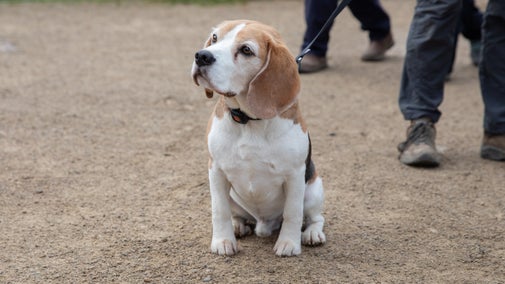
Romantic ruins, intimate gardens and internationally recognised plant collections, all set against a backdrop of the woodland and far-reaching views over the Weald. In autumn find a spot to sit and enjoy the garden.
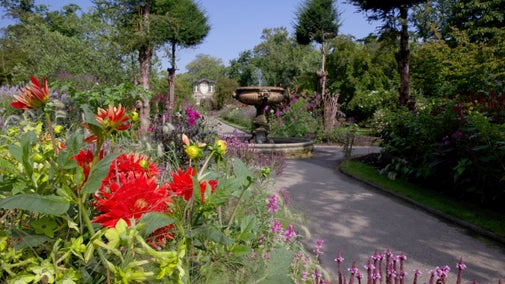
Explore Nymans’ medieval style manor, part house, part ruin following a devastating fire in 1947. It now offers romantic ruins and charming rooms to explore.

Discover natural play in the Play Glade, activities and events in the school holidays and an ancient woodland and garden to discover. Picnic anywhere in the garden, or pick up a snack from the cafe or kiosk. Baby change available by the house and in the cafe and car park.
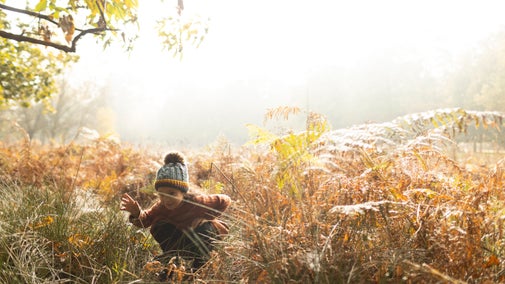
Under generations of the Messel family, Nymans in West Sussex has been through several transformations since the 1890s to become the house, ruin and garden you see today.

Plan a visit to one of the special countryside places in our care and discover the benefits of being in the great outdoors. Pack your walking boots and get ready to explore woodlands, valleys and rivers.
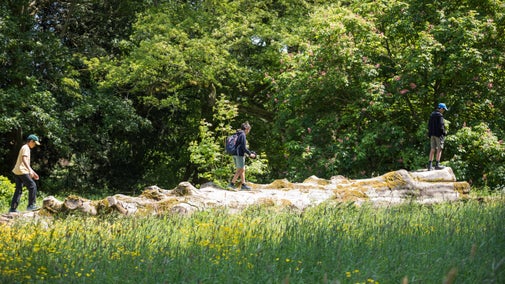
Discover the wide array of countryside settings around Sussex, from the highest point of East Sussex at Ditchling Beacon to the incredible rolling landscape of the South Downs.

Explore some of the finest landscapes in our care on coastal paths, accessible trails, woodland walks and everything in between. Find the best places to walk near you.
